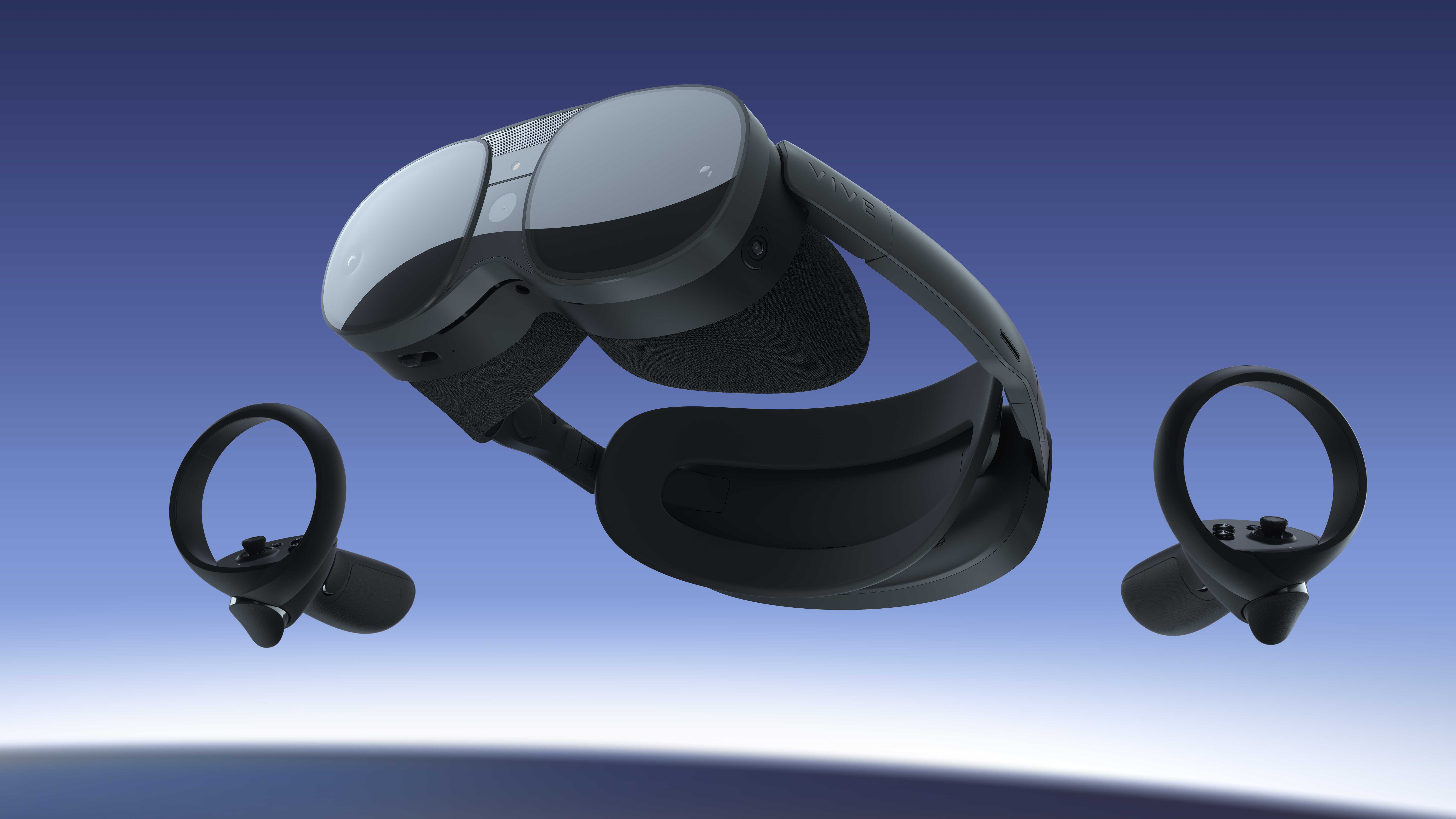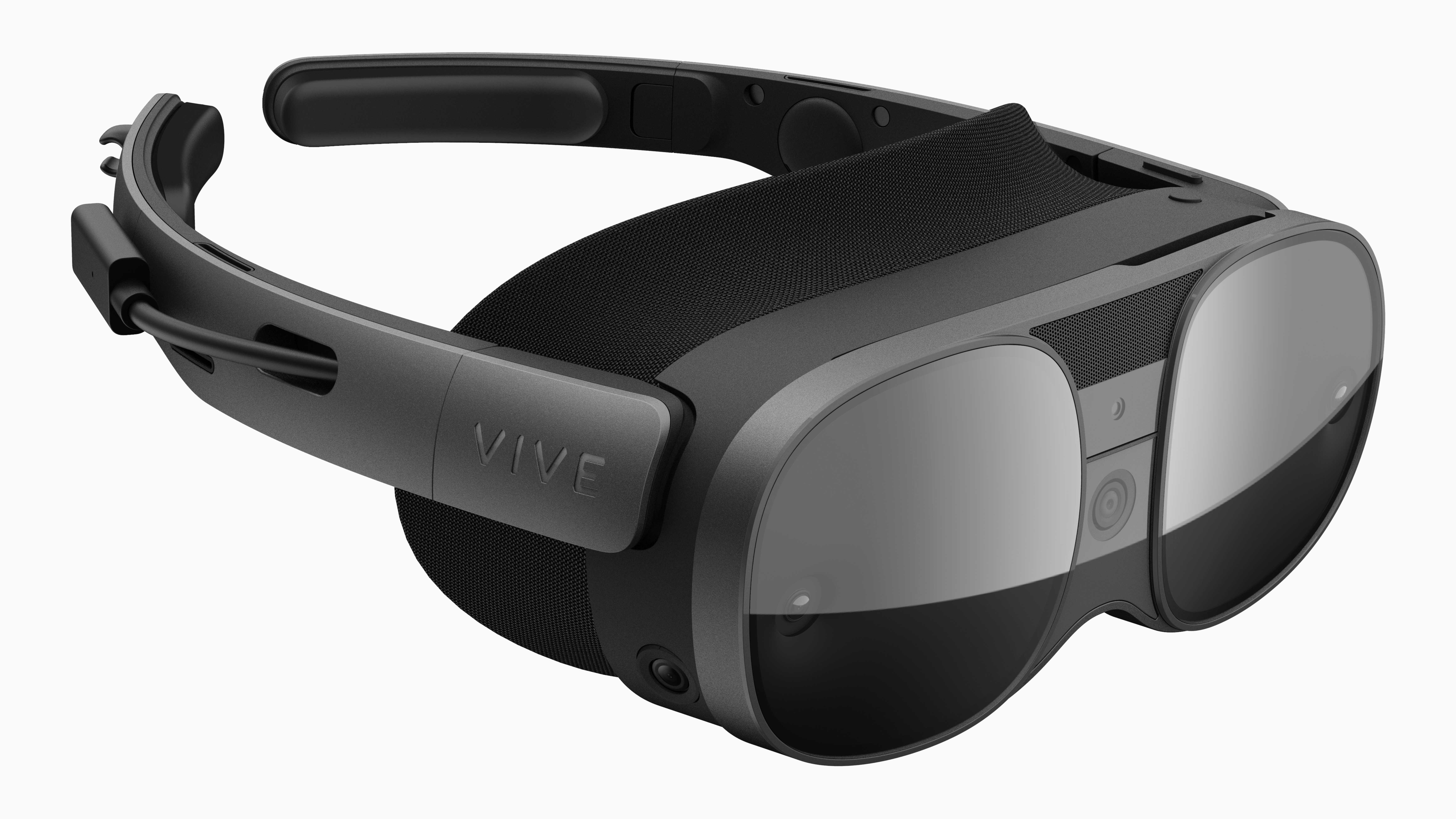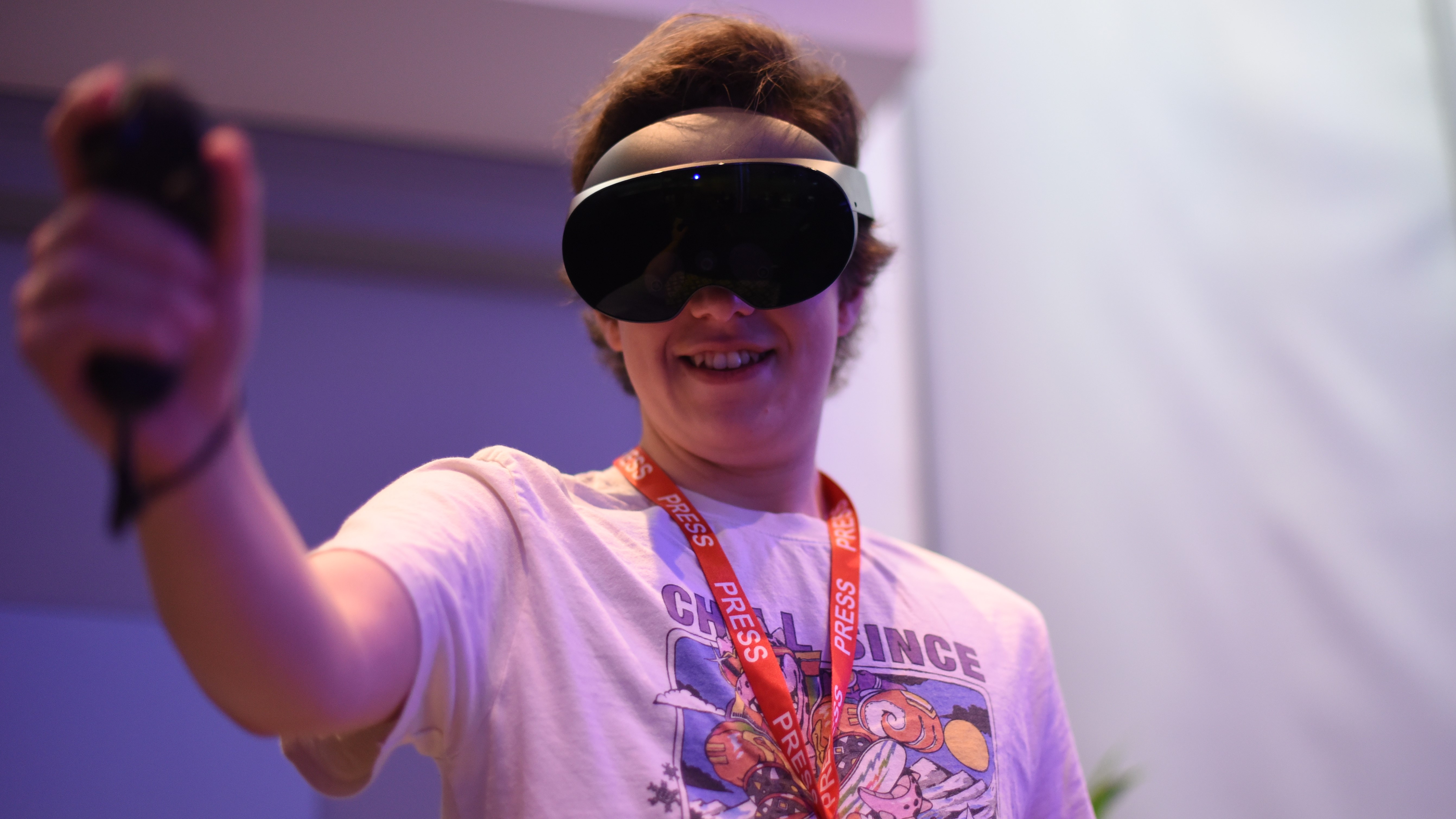HTC’s Vive XR Elite is already the most exciting VR headset of 2023
HTC's modular VR headset could be the gadget of your dreams

After numerous teasers for the announcement – including one less than a month ago – HTC has unveiled its all-new VR headset at CES 2023: the Vive XR Elite.
However, to call the Vive XR Elite simply a VR headset would be underselling this device’s capabilities, because just like the Meta Quest Pro (and the long-rumored Apple XR headset) this device is able to provide users with virtual reality and mixed reality experiences – XR is short for 'extended reality', a term that encompasses VR, AR (augmented reality) and MR.
That’s because it’s not only equipped with a 4K display that offers a 110-degree field of view and runs at a 90Hz refresh rate (the minimum rate required for comfortable VR experiences); it’s also outfitted with an RGB camera that will enable full-color passthrough (meaning you can see the real world in color while you're wearing the headset).
What’s more, the HTC Vive XR Elite has a depth sensor that allows it to accurately map virtual characters and objects into the real world to make mixed-reality games feel more real.
If you want more out of your headset, HTC has announced that later this year it’ll launch optional add-ons that provide additional features like eye and face tracking, though it's vague on when exactly these will be available.
And you’ll have a good variety of software to try out on this device too. At launch, the Vive XR Elite will support popular games like Demeo, The Last Clockwinder, and Ancient Dungeon, as well as some great apps like the Les Mills Bodycombat workout app and Figmin XR creation platform. HTC has confirmed that more titles are coming to the platform soon, and we should find out more in the not-too-distant future.

Unfortunately, HTC’s new Vive headset has a couple of flaws that may hold it back. For one, the removable battery only offers up to two hours of XR use on a full charge, and for another, the device won’t come cheap.
Sign up for breaking news, reviews, opinion, top tech deals, and more.
HTC’s Vive XR Elite will cost you $1,099 / £1,299 (around AU$2,300) for a bundle that includes the headset, two controllers, and the headset battery cradle. That price is a lot higher than the likes of the Oculus Quest 2 and the Pico 4 (which cost $400 / £400 / AU$630 and £380 (around $430 / AU$680) respectively), but it comes in a little cheaper than the Meta Quest Pro ($1,500 / £1,500 / AU$2,450).
Despite these issues, I think the XR Elite could be the most interesting headset of 2023 thanks to HTC’s fresh approach to its design.
Do VR your way
Our writers attending CES 2023 have had the chance to try out the new headset – so look out for their hands-on experiences – but what has me excited about the Vive XR Elite is its modular design.
Everyone wants something a bit different from the metaverse and XR experiences. I’m very much in the camp that VR is best for entertainment, while others are much more reliant on their headsets as a social tool – meeting up in apps like VR Chat – and some people even work in the metaverse for hours on end every day. So each of us needs something a little different from our hardware.
I’ve been really impressed with the Meta Quest Pro that I’ve been sent for review, but for every amazing aspect, there are some that I don’t care for, and others that I wish were better. If Meta had adopted a modular design I could, for example, replace the face tracking with a better battery and have a headset that's a much better fit for my needs.
Users looking to socialize more in VR might want to incorporate body tracking – perhaps with a suit that incorporates a few extra battery packs to facilitate longer play sessions – while a VR desk jockey may want a lightweight, batteryless design as they’ll only ever use their headset at their work station, and so they can always have it wired to a power source.

Modular designs have some disadvantages. Because fewer components are being mass-produced and assembled, the cost of the fully-specced out model will likely go up, plus the headsets may feel more confusing to someone who knows very little about the space. But in the long-run, modular headset designs could end up making the XR space much more accessible.
If you’re as excited as I am to try out the Vive XR Elite headset then you should know that it’s up for preorder right now, and units are expected to start shipping in late February.
This means we won’t have too long to wait and see if the HTC Vive XR Elite is a success – and see if its modularity proves popular. It looks like a very interesting product, and if HTC sticks the landing with it, it might end up being the best VR headset of 2023 – that is, unless the Oculus Quest 3 usurps it when that launches later this year.
Check out our CES 2023 hub for all the latest news and announcements from the show. We're covering everything from 8K TVs and foldable displays to new phones, laptops, and smart home gadgets.

Hamish is a Senior Staff Writer for TechRadar and you’ll see his name appearing on articles across nearly every topic on the site from smart home deals to speaker reviews to graphics card news and everything in between. He uses his broad range of knowledge to help explain the latest gadgets and if they’re a must-buy or a fad fueled by hype. Though his specialty is writing about everything going on in the world of virtual reality and augmented reality.